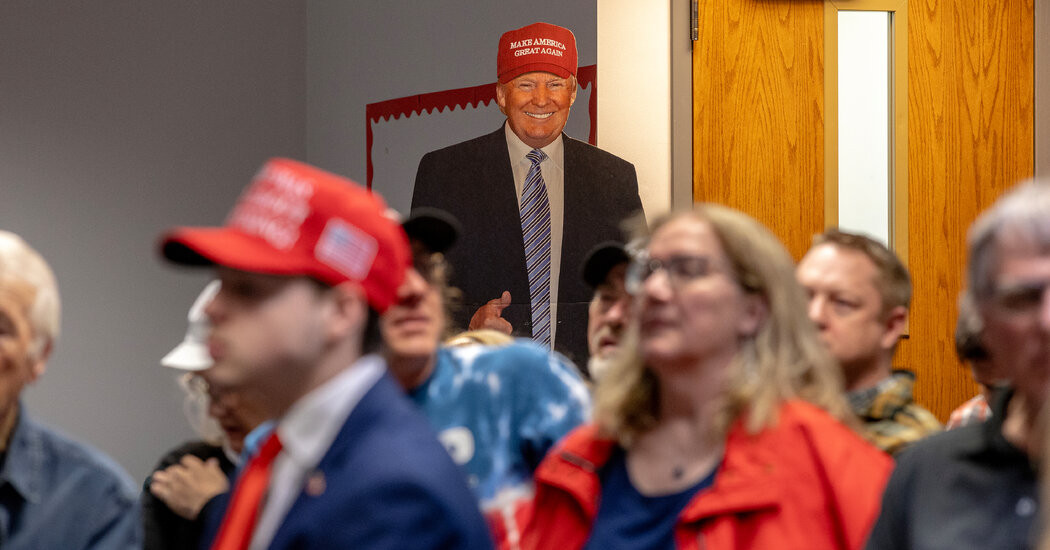

Down-ballot races in Florida and Wisconsin are seen as a referendum on the White House, while the president’s to-be-announced reciprocal tariff plan is increasingly worrying investors and consumers.
President Trump’s political momentum will face a major test this week as Democrats try to turn various down-ballot races into a referendum on the White House, and Mr. Trump’s long-promised tariffs risk rattling allies and consumers alike.
A State Supreme Court election in Wisconsin on Tuesday is seen as an indicator of support for Mr. Trump, particularly after Elon Musk and groups he funds spent more than $20 million to bolster Mr. Trump’s preferred candidate. White House officials have also been increasingly concerned with the unusually competitive race on Tuesday for a deep-red House seat in Florida left vacant after Representative Michael Waltz stepped down to serve as Mr. Trump’s national security adviser.
The White House is hoping victories in those races will tighten Mr. Trump’s grip on the Republican Party as his team seeks to overcome the backlash from its inadvertent sharing of military plans on a commercial app with a journalist.
The Florida election is critical for Republicans, who hold a narrow majority in the House as they try to pass the president’s agenda. The outcome of the Wisconsin race, in a battleground state that Mr. Trump narrowly won last year, could be a reflection of voters’ views on the president’s gutting of the federal work force, his crackdown on illegal immigration and his moves to purge diversity, equity and inclusion initiatives.
“It’s a big race,” Mr. Trump said of the Wisconsin judicial contest on Monday while signing executive orders in the Oval Office. “Wisconsin is a big state politically, and the Supreme Court has a lot to do with elections in Wisconsin.”
Mr. Trump is also expected to reveal the details of his reciprocal tariff plan on Wednesday. He has labeled it “Liberation Day,” saying the nation will finally break free of past trade relationships that he argues have cheated the United States. Investors, however, are growing more concerned that the tariffs could fuel inflation and slow consumer spending, potentially driving up economic anxieties among voters.